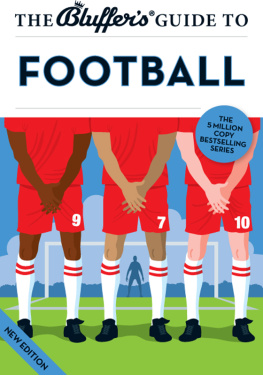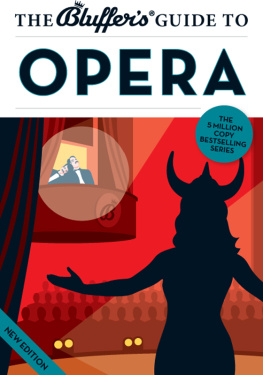Richards - The Bluffers Guide to Management
Here you can read online Richards - The Bluffers Guide to Management full text of the book (entire story) in english for free. Download pdf and epub, get meaning, cover and reviews about this ebook. City: London, year: 2013, publisher: Bluffers Guides, genre: Business. Description of the work, (preface) as well as reviews are available. Best literature library LitArk.com created for fans of good reading and offers a wide selection of genres:
Romance novel
Science fiction
Adventure
Detective
Science
History
Home and family
Prose
Art
Politics
Computer
Non-fiction
Religion
Business
Children
Humor
Choose a favorite category and find really read worthwhile books. Enjoy immersion in the world of imagination, feel the emotions of the characters or learn something new for yourself, make an fascinating discovery.
- Book:The Bluffers Guide to Management
- Author:
- Publisher:Bluffers Guides
- Genre:
- Year:2013
- City:London
- Rating:4 / 5
- Favourites:Add to favourites
- Your mark:
- 80
- 1
- 2
- 3
- 4
- 5
The Bluffers Guide to Management: summary, description and annotation
We offer to read an annotation, description, summary or preface (depends on what the author of the book "The Bluffers Guide to Management" wrote himself). If you haven't found the necessary information about the book — write in the comments, we will try to find it.
Richards: author's other books
Who wrote The Bluffers Guide to Management? Find out the surname, the name of the author of the book and a list of all author's works by series.
The Bluffers Guide to Management — read online for free the complete book (whole text) full work
Below is the text of the book, divided by pages. System saving the place of the last page read, allows you to conveniently read the book "The Bluffers Guide to Management" online for free, without having to search again every time where you left off. Put a bookmark, and you can go to the page where you finished reading at any time.
Font size:
Interval:
Bookmark:


Colette House
52-55 Piccadilly
London W1J 0DX
United Kingdom
Email:
Website: bluffers.com
Twitter:
First published 1985
This edition published 2013
Copyright Bluffers 2013
Publisher: Thomas Drewry
Publishing Director: Brooke McDonald
Series Editor: David Allsop
Design and Illustration: Jim Shannon
All rights reserved. No part of this publication
may be reproduced, stored in a retrieval system
or transmitted in any form or by any means, electronic,
mechanical, photocopying, recording or otherwise,
without the prior permission of Bluffers.
A CIP Catalogue record for this book
is available from the British Library.
Bluffers Guide, Bluffers and Bluff Your Way
are registered trademarks.
| ISBN: | 978-1-909365-56-8 (print) 978-1-909365-57-5 (ePub) 978-1-909365-58-2 |

If your train is late, it is a failure in operational management by the rail company, but if you are late for your train, your own failure in time management is to blame.

T he great secret of management is that it is actually rather easy. This is a secret because if everyone knew how easy it was, everyone all right, nearly everyone could probably do it. Then what would be the point of having managers?
Worse, what would be the point of being a manager? To whom would the prestige and the status be accorded? What would happen to the extra money and the perks? They might go to the people who can actually do things rather than to the people who tell them to do them. The horror!
So the role of bluffing in management is not only about pretending to be more knowledgeable than you are. It is also about pretending that it is necessary to be more knowledgeable than you are.
Most of the academic discipline of management science consists of making things that are in themselves rather simple appear complex. Indeed, the whole process begins by calling it a science. There is nothing particularly scientific about management. It is, like bluffing itself, more of an art.
Like any art, it depends on the mastery of a few basics, but those basics can be summarised in a short bookabout this size, as it happens.
Management is a big subject with lots of different aspects. The word management can be used as a prefix to form a broad range of threatening terms management techniques, theories, committees, functions, tools, and so on and so on. How can you hope to understand them all? Fortunately you do not have to.
The essence of bluffing is to retain control of a situation, or at least your position in it, without sufficient data, assets, ability or power to justify that retention. That, as it happens, is also the essence of most management.
In some ways, management should need no introduction. We are all exposed to it on a daily basis, and not just at work. Daily survival in the twenty-first century depends on smooth management. Most of the glitches you face in your daily life, from letters being lost in the post to not having enough milk for your coffee, can be described as management failures and if you cannot pin a management failure on anyone else, you might have to accept it as your own. If your train is late, it is a failure in operational management by the rail company, but if you are late for your train, your own failure in time management is to blame.
The fact is that we are all managers the managers of our own lives, whether or not we like to think of it that way but that does not mean we can all be taught to be successful managers. Just as some leaders are born rather than trained, there are people on whom management courses or, indeed, any formal education, are wasted. These often turn out to be the best managers because their heads arent cluttered with arcane theory.
Managing even a big organisation is only an application of the basic principles you have learnt in managing your own day-to-day existence. Most management really is just common sense. However, over the years the common has grown into specific, where different areas of the organisation require different management skills. You do not have to worry about obtaining an in-depth understanding of these different disciplines; you just need to know about the concepts that are common to them all so it really is common sense.
An overview of each of the different areas of management will enable you to appear extremely knowledgeable about your fellow managers areas of expertise (assuming that they really are genuine specialist managers, dedicated to their own areas of expertise, and not, like you, expert in the art of bluffing).
To outsmart your peers, subordinates and superiors, you can use this book to learn useful management tools which you should utilise by dropping them into conversation whenever possible. Of course, you are not expected to make use of them yourself, but armed with the management skills of delegation and staff empowerment, you will be amazed at how you will be able to guide your staff to use the tools to get results that you can then use to impress others.
How can a bluffer pass as a real manager? Remarkably easily. Very few managers think seriously about their actions, objectives and motives. Anyone devoting even a fragment of the working day to cerebral activity about being a better manager stands out as a dangerous revolutionary. People above them on the corporate ladder see this sort of reckless individualism at best as a catalyst for change (which nobody likes) and at worst as a threat to their own positions. Or they see them as a sort of David Brent from The Office, who was a threat only to himself.
The perfect manager seeks to rise above the herd while, at the same time, appearing to desire nothing more than to remain part of it. You need to be seen as a team player if you are to effectively lead the team, but you must also separate yourself from mere followers in thought, word and deed without anyone noticing what you are doing. As comedian George Burns said: Sincerity is everything. If you can fake that, youve got it made.
This book sets out to guide you through the main danger zones where you are most likely to encounter tricky management challenges. It will equip you with the vocabulary and evasive techniques required to distinguish yourself as a manager of rare ability and experience and to minimise your risk of being found out as a bluffer. In other words, it will enable you to impress legions of marvelling listeners with your knowledge and advice without anyone discovering that youre probably not the best person to manage a village paper round.
Y our first decision in management is the most important: where do you want to bluff? The born bluffer will of course aim straight for the top. There is, after all, always room there. However, there is also vicious in-fighting there, between some of the most cunning and competitive people in the world. So you might prefer to look for a niche a little lower down, where you can be monarch of your own private empire.
The importance of your choice of title cannot be overstressed. Note that it is your choice. Your employers may be under the quaint impression that they choose what to call you, but this is true only if you let them. What you call yourself defines how others see you and how you see yourself. Title is in fact a self-fulfilling prophecy: if you sound important, you will be important.
Next pageFont size:
Interval:
Bookmark:
Similar books «The Bluffers Guide to Management»
Look at similar books to The Bluffers Guide to Management. We have selected literature similar in name and meaning in the hope of providing readers with more options to find new, interesting, not yet read works.
Discussion, reviews of the book The Bluffers Guide to Management and just readers' own opinions. Leave your comments, write what you think about the work, its meaning or the main characters. Specify what exactly you liked and what you didn't like, and why you think so.



















